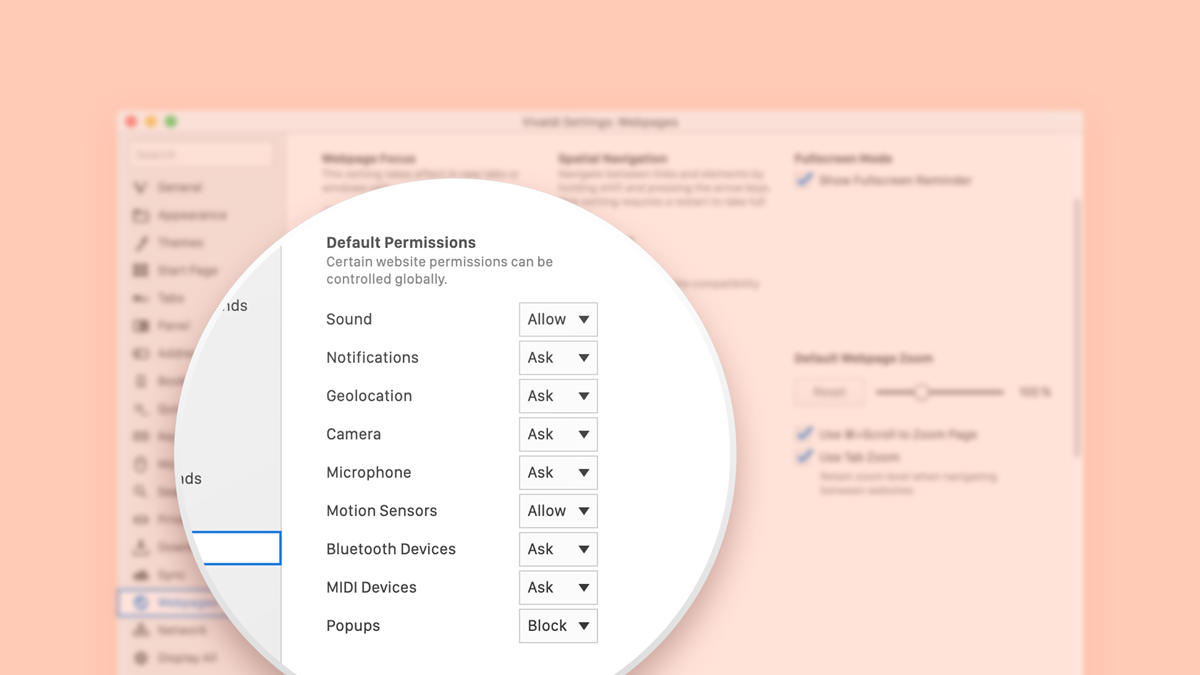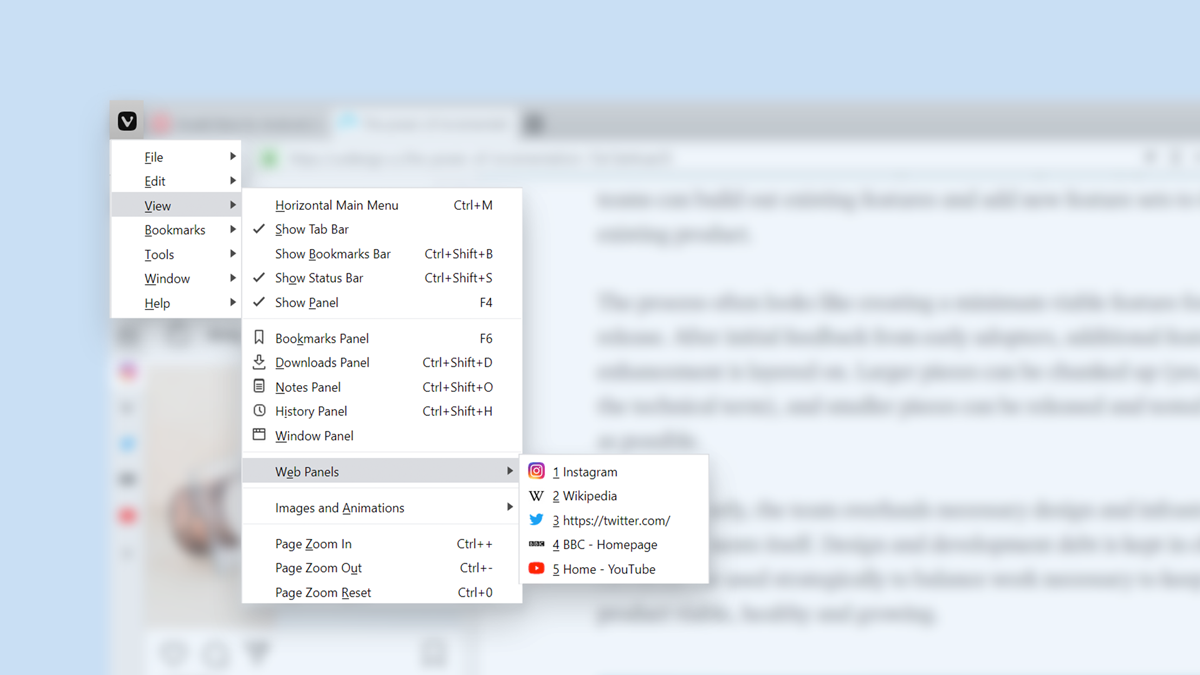
OSLO, Norway – October 31st, 2019: The new desktop version of the Vivaldi browser focuses on effective navigation, better usability, and snappier performance. Users can now access the browser’s functionality quicker with the enhanced Vivaldi Menu and can also put a stop to unwanted website notifications.
What’s on the Menu?
There are different ways to access various features in Vivaldi such as Keyboard Shortcuts, Mouse gestures and Quick Commands. The Vivaldi Menu is one of them.
Windows and Linux users can set the Vivaldi Menu just the way they want – as Vivaldi icon, or horizontally across the top of the window. They can even choose the menu style icon, adding more flair to it. Simply go to Settings > Appearance > Menu.
In this new version, a lot of work has been done on the Vivaldi Menu enhancing its structure even more. Adding more options and flexibility to it, users can access their preferred features more intuitively and much faster.
According to Espen Sand, Developer at Vivaldi who has done most of the work on the menu, “A lot of users prefer to access important functionality using the Menu Bar. And with this release, keyboard navigation and mouse handling of the menus have been improved tremendously.”
Here are the new elements that have been added to the Vivaldi Menu:
- Web Panels: Users can now access custom Web Panels through the top menu. This means easy access to the sites that have been added to Vivaldi’s sidebar, letting users stay abreast of their social media channels, news feeds and more.
- Show Tab Bar: Access the Tab Bar with just a simple click, or even hide it for more screen real estate.
- Bookmarks: When viewing a Bookmark listed in the Vivaldi Menu, users can now right-click it to access a context menu and perform different actions with it.
- Report a bug: Report a bug directly from the browser’s Help menu.
Set global default site permissions
Notifications appearing on screen from random sites can sometimes (or most of the time) feel invasive and unwanted.
Of course, users can always dismiss these notifications one by one, or adjust site permissions on a per-site basis.
But Vivaldi goes a little further and gives users a way to snuff out these annoying interruptions. Users can now set global default preferences for requests based on sound, geolocation, camera, microphone, motion sensors, Bluetooth devices, and Pop-ups.
They can be easily controlled from Settings > Web Pages > Default Permissions

Here’s more in Vivaldi 2.9
- Video improvements for macOS: This version brings in significant progress in fixing some HTML5 video issues, where videos would not play in the older machines.
- Better performance: Our ongoing work on improving overall performance includes updating some components. Opening and closing of tabs feels much snappier resulting in an improved speed.
- Improved usability for users in CJK countries (China, Japan, and Korea): Japan has been the top country in browser usage for Vivaldi from the start. Vivaldi continues to resolve any issues that are stumbling blocks for its users. This version fixes some difficult IME (Input Method Editor) issues in the Address Bar. Users can now browse without difficulty using the dropdown menu or even typing a Korean letter twice in the Address Field.
“Creating effective navigation is crucial for browsing. At Vivaldi, we look into every aspect of the browser to ensure better usability and performance. Good navigation should be intuitive and easy to use,” says Vivaldi CEO Jon von Tetzchner.
